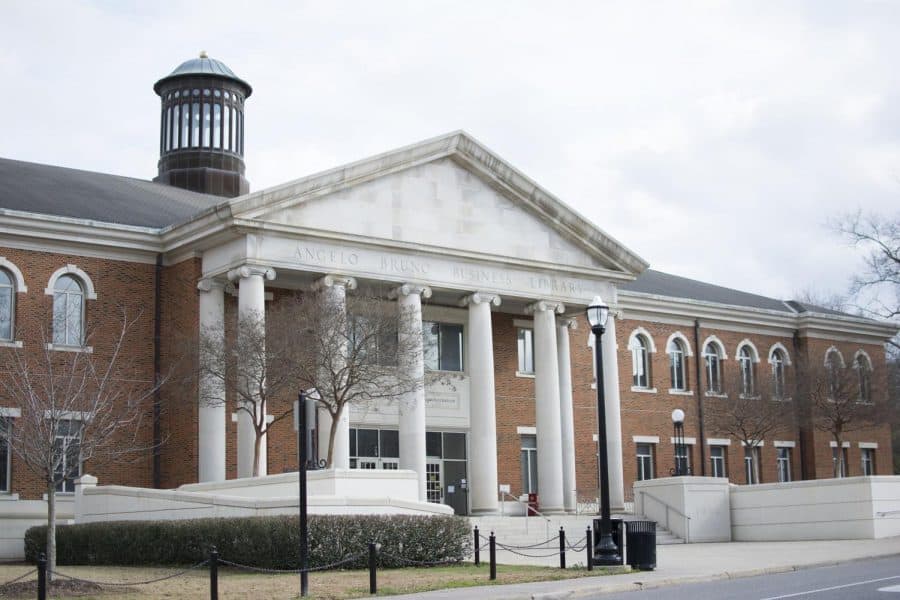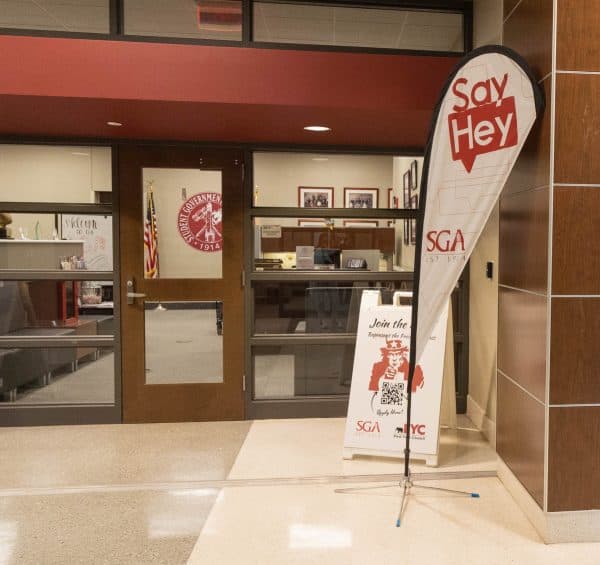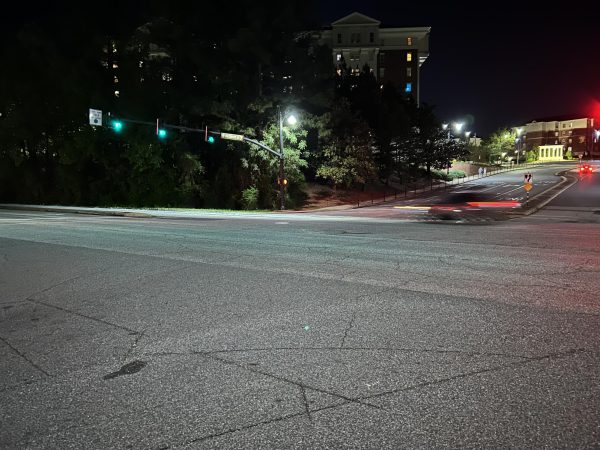Students fall for parody site story
February 7, 2019
Angelo Bruno Business Library, to some students, became a place of illegal activity when an alleged fellow student was supposedly arrested on the second floor of the library on Sunday, Jan. 13 for printing out pages full of fraudulent Florida IDs so he could “get [his] pledge brothers into Rounders.”
The Crimson Right, a parody website, published the story the following morning. The whole altercation between “Skylar Adams,” the librarians and the Tuscaloosa Police Department was satire; however, some students did not realize the mockery behind the story.
It didn’t take long for the publication to sweep the internet, booming on social media platforms. Confusion arose among students not knowing if the source was reliable or not.
“People are sharing things and commenting on things without checking it out, and then they get mad when they get burnt,” said Dianne Bragg, assistant professor of journalism and creative media.
The Crimson Right’s website includes an “About” section, and at the bottom of it, there is a disclaimer stating that its stories are satirical.
“All content presented on The Crimson Right network, its affiliates, and 3rd party platforms is purely fictional. (Thank god) Our writing is satirical and intended solely for the entertainment of our viewers,” according to The Crimson Right’s disclaimer.
Bragg said the website having a disclaimer shows that the members have done what they needed to in order to inform the public about their fictional writing.
“When it comes to parody and things like that and satire, it is very much protected,” Bragg said. “I think they have done their due diligence by having that disclaimer on there.”
Though the disclaimer is there, some students were still deceived due to not seeing it.
“Me and the older guys in my fraternity are always trying to find ways to get the younger pledge class into the bars when we go out,” said Hayden Long, a sophomore majoring in exercise science. “I just assumed it was true, because it is definitely something one of us would probably try to pull off.”
Satire is not meant to deceive someone. Rather, it’s meant to be humorous.
“Satire, parody and all those things rely on a certain level of deception maybe, but most of the time, people realize pretty quickly, and some people don’t,” Bragg said.
Parody is not an infringement of copyright according to the fair use doctrine, as its purpose can be to transform a work into something original.
“The fair use of a copyrighted work, including such use by reproduction in copies or phonorecords or by any other means specified by that section, for purposes such as criticism, comment, news reporting, teaching (including multiple copies for classroom use), scholarship, or research, is not an infringement of copyright,” according to section 107 of the Copyright Act.
Parody employs humor in commentary and criticism and uses that as a tool to send a message. That is what The Crimson Right does when it publishes stories.
“Whether we’re on air covering ABC raids that might affect your weekend schedule, complaining about racially homogeneous UAPD alerts or just getting the scoop on your TA’s shi**y mood, The Crimson Right is always watching,” according to the “About” section on The Crimson Right website.
Not all students were baited by the The Crimson Right’s story.
“When I first saw the news story on my friend’s Snapchat story, I thought it was funny, but then I noticed that The Crimson Right sounded just like The Crimson White,” said Sydney Boright, a freshman majoring in fashion merchandising. “After making the connection, I started clicking around on the website and found the disclaimer where it said all their stories are fictional.”
When it comes to reading news, Bragg said students should look to get their information from sources they know are verifiable.
“If it were The Crimson Left, you might not have had so many people fall for it, but it’s The Crimson Right,” Bragg said. “I think they were thinking it was some sort of political newsletter. The main thing I tell my students is get your news from recognizable sources that you know you can count on.”











